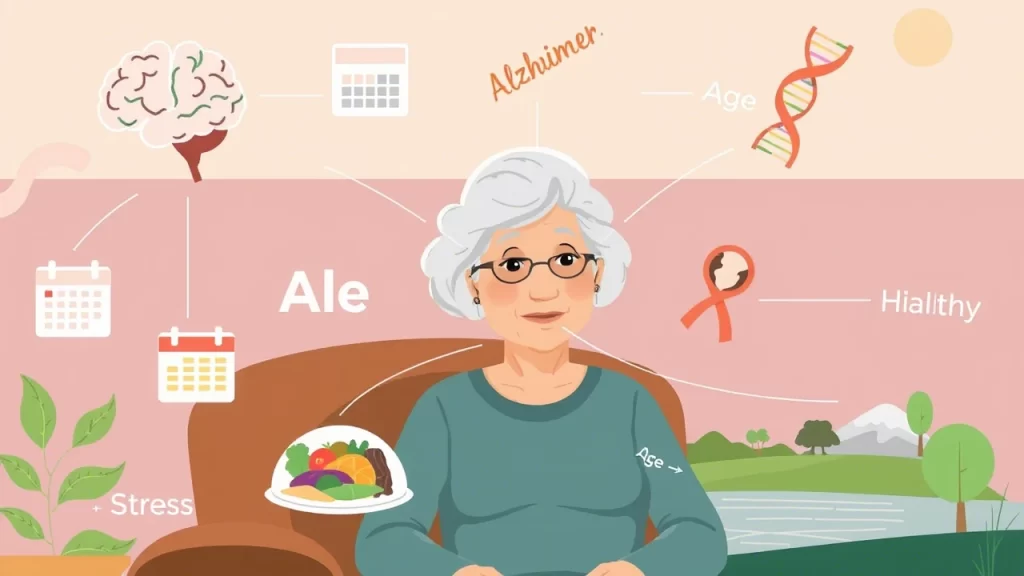Alzheimer’s Disease affects more than 6 million Americans, and women make up nearly two-thirds of those diagnosed. This striking statistic highlights the urgent need to understand why women face a higher risk and how they can take proactive steps to protect their cognitive health.
We understand how overwhelming it can feel to navigate the complexities of Alzheimer’s Disease, but you’re not alone. This guide will empower you with the knowledge and tools to take control of your journey. Let’s take the first step together toward a healthier, happier future!

Why Women Are More Susceptible to Alzheimer’s
Several factors contribute to women’s increased vulnerability to Alzheimer’s Disease:
- Longevity: Women generally live longer than men, and age is the greatest risk factor.
- Hormonal Changes: The decline in estrogen after menopause may affect brain function and increase risk.
- Genetic Factors: Women with the APOE-e4 gene variant have a higher likelihood of developing the disease.
- Lifestyle and Social Factors: Women are more likely to take on caregiving roles, which can increase stress and impact cognitive health.
Understanding Gender Differences in Brain Health
Research shows that men and women’s brains age differently, influencing Alzheimer’s development:
- Memory Performance: Women often outperform men in verbal memory tests, which can delay diagnosis.
- Brain Structure: Women’s brains show more significant shrinkage in the hippocampus, a region crucial for memory.
- Inflammation: Higher levels of brain inflammation in women can contribute to cognitive decline.
How Age Increases Alzheimer’s Risk for Women
As women age, their risk of Alzheimer’s Disease rises due to:
- Cumulative Stress: Lifelong stressors can lead to chronic inflammation and affect brain health.
- Cardiovascular Health: Conditions like high blood pressure and diabetes, more common in older adults, are linked to Alzheimer’s.
- Reduced Cognitive Reserve: Aging can diminish the brain’s resilience to damage.
Early Symptoms Women Shouldn’t Ignore
Early detection is crucial for managing Alzheimer’s Disease. Women should watch for:
- Memory Loss: Forgetting recent events or important dates.
- Difficulty Planning: Struggling with familiar tasks or managing finances.
- Confusion: Getting lost in familiar places.
- Mood Changes: Increased anxiety, depression, or withdrawal from social activities.
Preventive Measures for Cognitive Health
Women can take steps to lower their risk of Alzheimer’s Disease:
- Stay Physically Active: Regular exercise improves blood flow to the brain.
- Maintain a Balanced Diet: The Mediterranean diet, rich in fruits, vegetables, and healthy fats, supports brain health.
- Engage in Mental Stimulation: Reading, puzzles, and learning new skills keep the mind sharp.
- Prioritize Sleep: Quality sleep helps the brain clear toxins.
- Manage Stress: Meditation and mindfulness can reduce chronic inflammation.
Research on Women and Alzheimer’s: What’s Next?
Ongoing research aims to uncover why women are more affected by Alzheimer’s Disease and how to tailor prevention and treatment:
- Hormone Therapy Studies: Exploring the impact of estrogen on brain health.
- Genetic Research: Identifying genes that increase risk.
- Lifestyle Interventions: Investigating the role of diet, exercise, and stress management.
FAQs
Q: What are the main causes of Alzheimer’s Disease? A: Age, genetics, and lifestyle factors all play a role in developing the disease.
Q: How can I prevent Alzheimer’s complications? A: Staying active, eating well, and managing stress can help maintain cognitive health.
Q: When should I see a doctor about memory issues? A: If memory problems interfere with daily life, consult a healthcare professional.

Conclusion
Every step you take toward improving your cognitive health is a victory worth celebrating. You have the power to create lasting change. Share this guide with someone who might benefit from it, or reach out to a trusted expert for guidance. Together, we can build a healthier tomorrow.
If you’re struggling with Alzheimer’s Disease, know that help is available. Consider reaching out to a healthcare professional or support group—you deserve support and care.
External Resources:
Related Articles:


Pingback: Chronic Bladder Pain: Understanding Interstitial Cystitis - stay healthy today